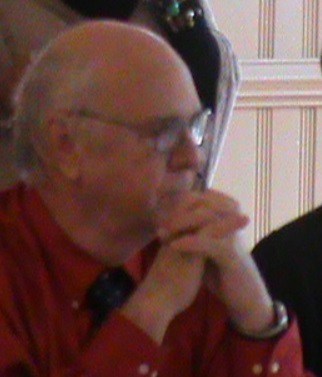
New filings by federal prosecutors in the criminal case against Zeek’s Paul Burks reveal that a grand-jury investigation was under way within days of the SEC’s Aug. 17, 2012, shutdown of the “program” and confirmation by the U.S. Secret Service that it also was investigating Zeek.
Burks was subpoenaed by the grand jury on Aug. 24, 2012, and testified before the panel less than a month later, on Sept. 20, 2012, according to prosecutors. He ultimately was indicted by the grand jury in October 2014, more than two years after the August 2012 subpoena and his subsequent appearance the following month.
Whether others within Zeek also had been subpoenaed or had knowledge of Burks’ appearance is unclear. What is known is that a group of Zeek members — during the same 2012 time period — embarked on a fundraising campaign while accusing the SEC of misleading a federal judge and admitting it had a weak case.
One of the members of the group was Todd Disner, a former winner in the AdSurfDaily Ponzi scheme later identified as a major winner in the Zeek scheme. Zeek receiver Kenneth D. Bell has raised the issue of serial promoters moving from one fraud scheme to another.
Bell specifically has referenced ASD. Federal prosecutors have, too.
Given that ASD operator Andy Bowdoin is in federal prison for running a Ponzi scheme and Zeek’s “program” was similar to ASD in key ways, events at ASD could be problematic for Burks. How did Disner, for example, end up at Zeek?
Despite knowing about ASD in 2011, Burks nevertheless moved forward with Zeek, prosecutors contend.
The government is arguing that the ASD fraud put Burks on notice of his own fraud and that evidence pertaining to ASD should be admissible.
Precisely what the government intends to introduce about ASD is unknown. But as part of his defense, Burks is asking U.S. District Judge Max O. Cogburn Jr. to exclude evidence about ASD.
“This case is about Paul Burks, Rex Venture Group, Zeekler.com, and ZeekRewards.com,” Burks advised Cogburn in a June 28 trial brief. “It is not a referendum on direct selling or multi-level marketing programs. The trial of this case is not the time, or the place, for a jury to render a verdict on these types of companies or programs, which are perfectly legal yet regularly criticized.
“It is also not about corporate malfeasance or wrongdoing by others, which is precisely what the Government seeks to convey to the jury by referencing ASD. Accordingly, the Government should be barred from any reference ASD, or any other entity whose conduct is completely irrelevant to the facts of this case. Even if there is some limited relevance to ASD (it is mentioned in government witness interviews), the Court should bar any mention of ASD since the limited probative value of such evidence is substantially outweighed by a danger of unfair prejudice, confusion, being grossly misleading, and inviting a trial-within-a-trial.”
Burks’ trial on charges of wire fraud, mail fraud, conspiracy to commit both and conspiracy to commit tax fraud is scheduled to get under way July 5.
We’re working on a story that will cover other elements of his defense.
In a development yesterday, the government contended Burks withheld “purported” handwritten notebooks from the grand jury during his September 2012 appearance and didn’t turn them over until April 2016.
Burks now wants to use the “unauthenticated” notebooks as a trial exhibit and as the basis for the opinions of expert witnesses he intends to call, prosecutors argued.
“Defendant’s failure to produce these documents in response to the Grand Jury testimony, his testimony that he had produced all responsive documents, and the production of these Handwritten Notebooks on the eve of trial, without explanation, all raise serious concerns about the legitimacy of the Handwritten Notebooks,” prosecutors argued to Cogburn.
NOTE: Thanks to the ASD Updates Blog.